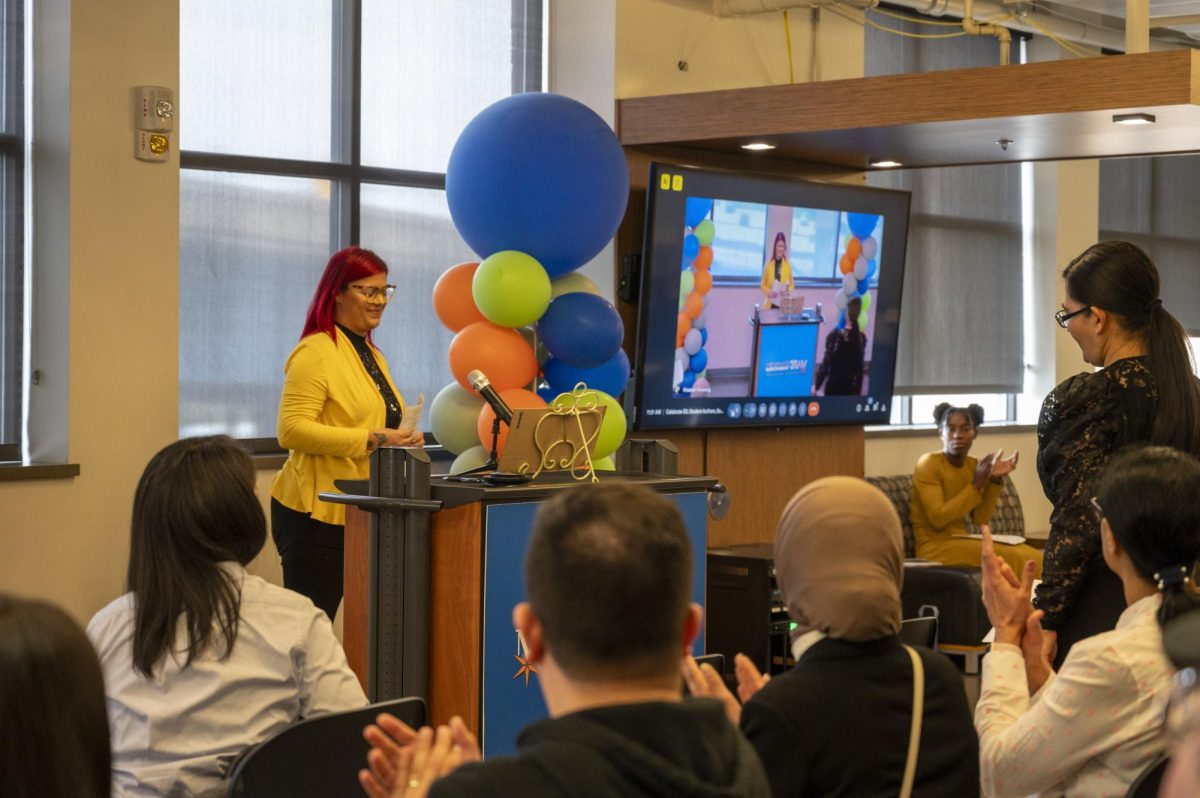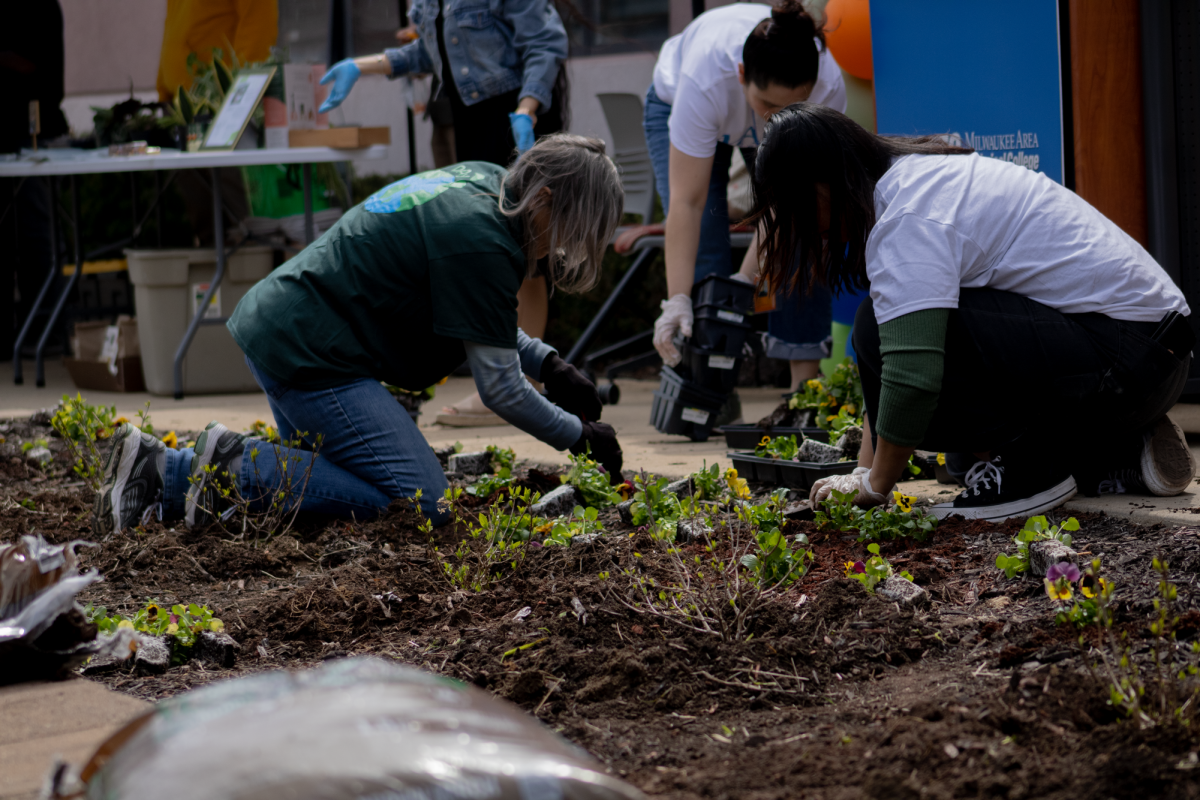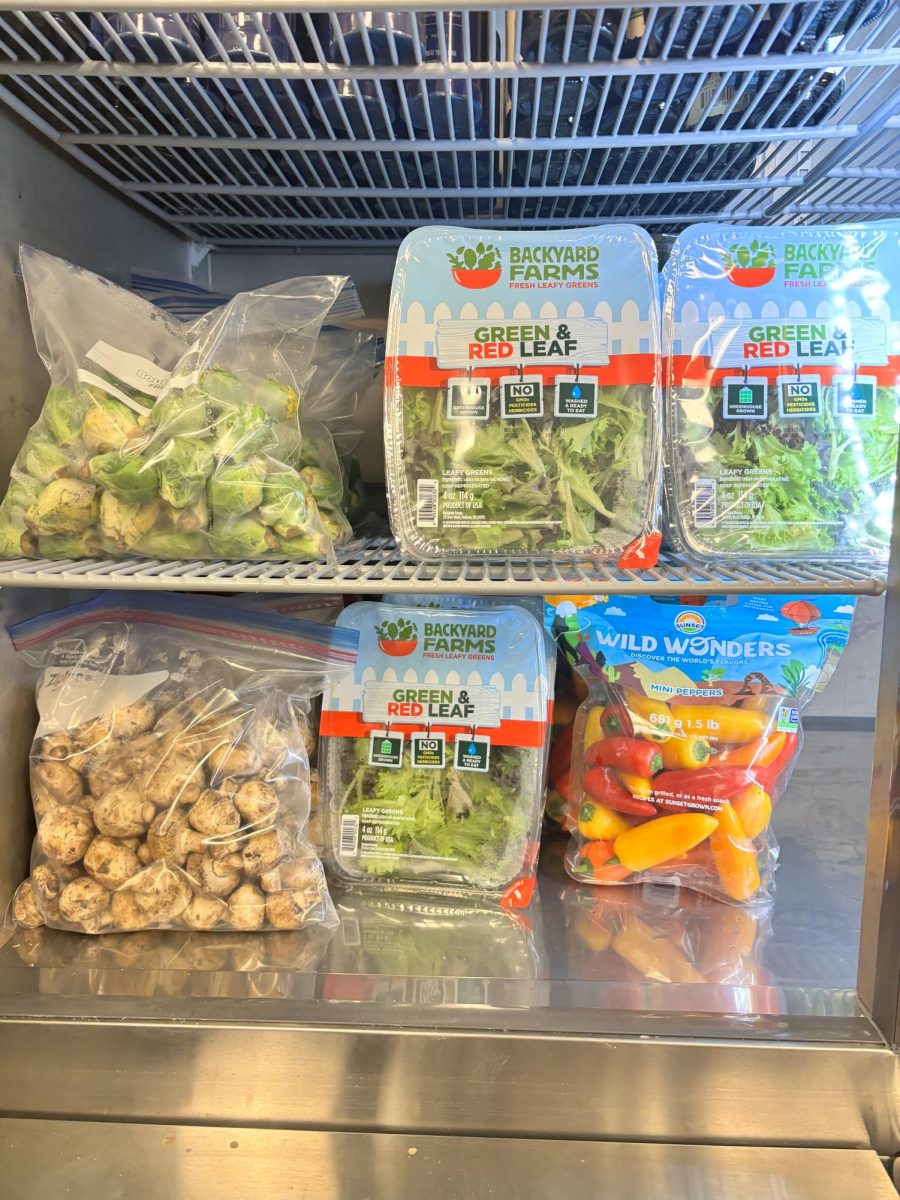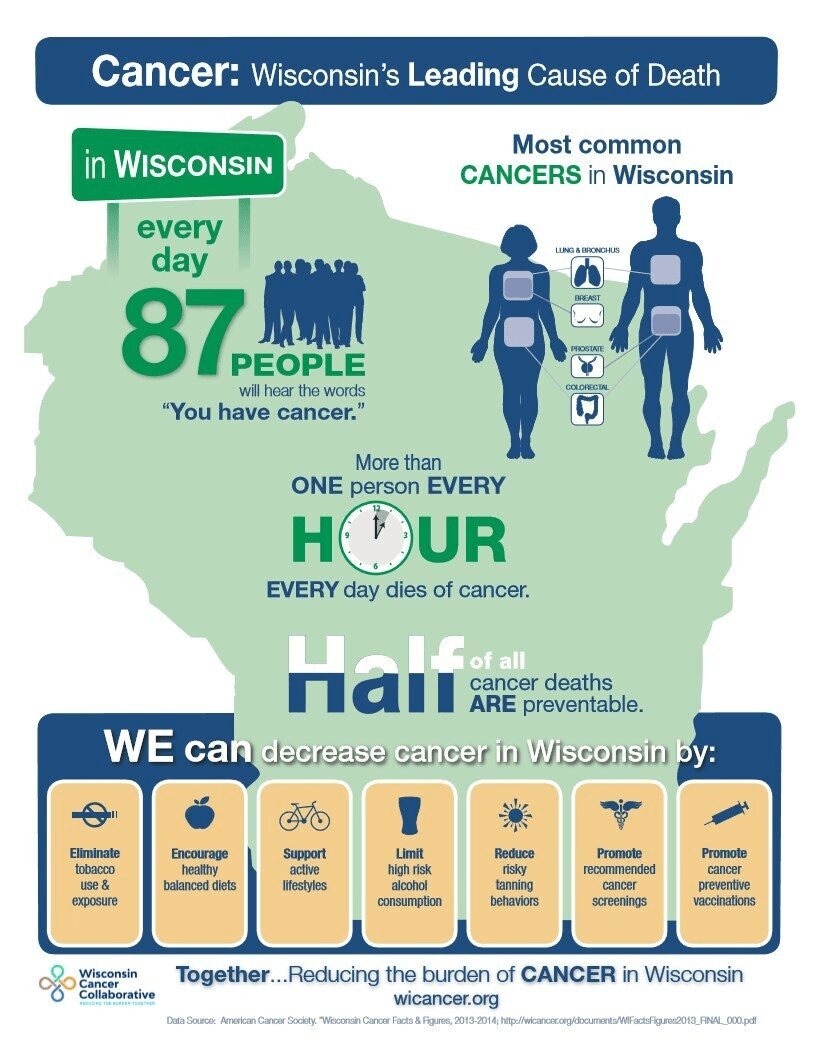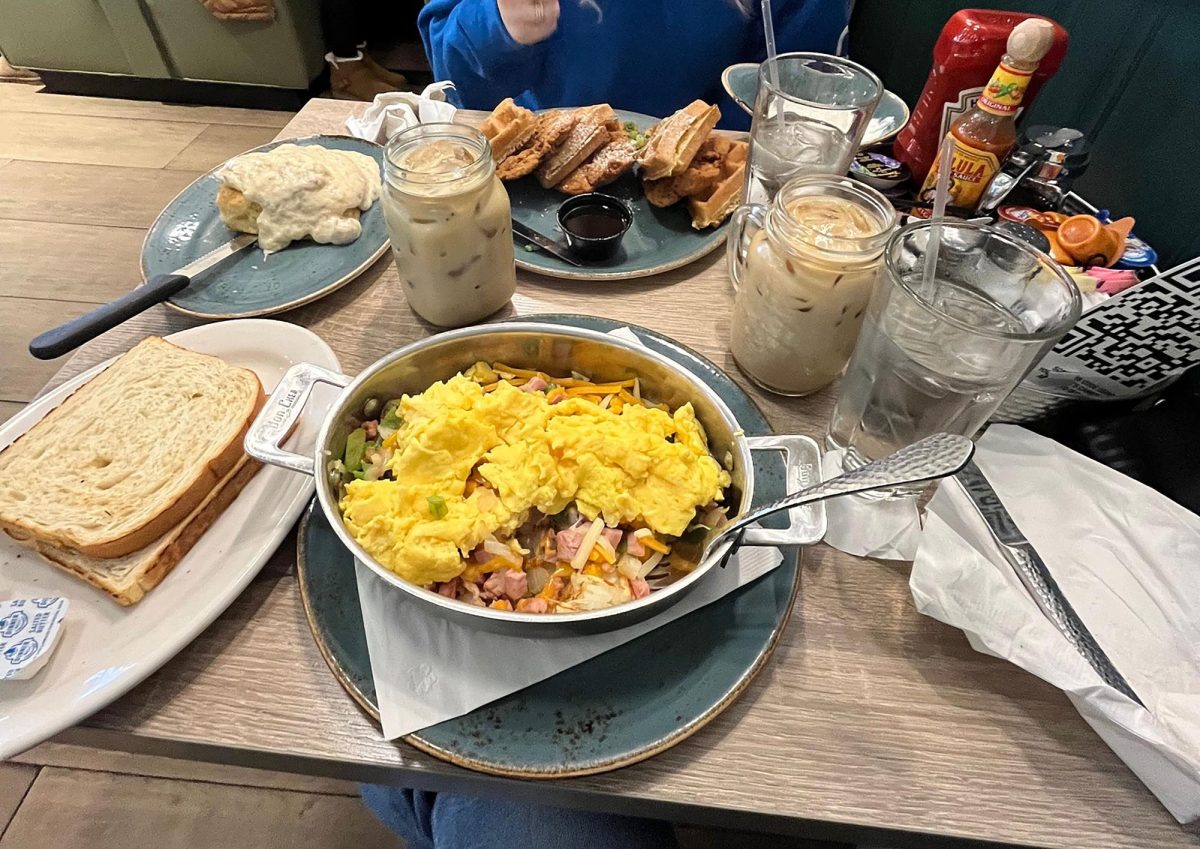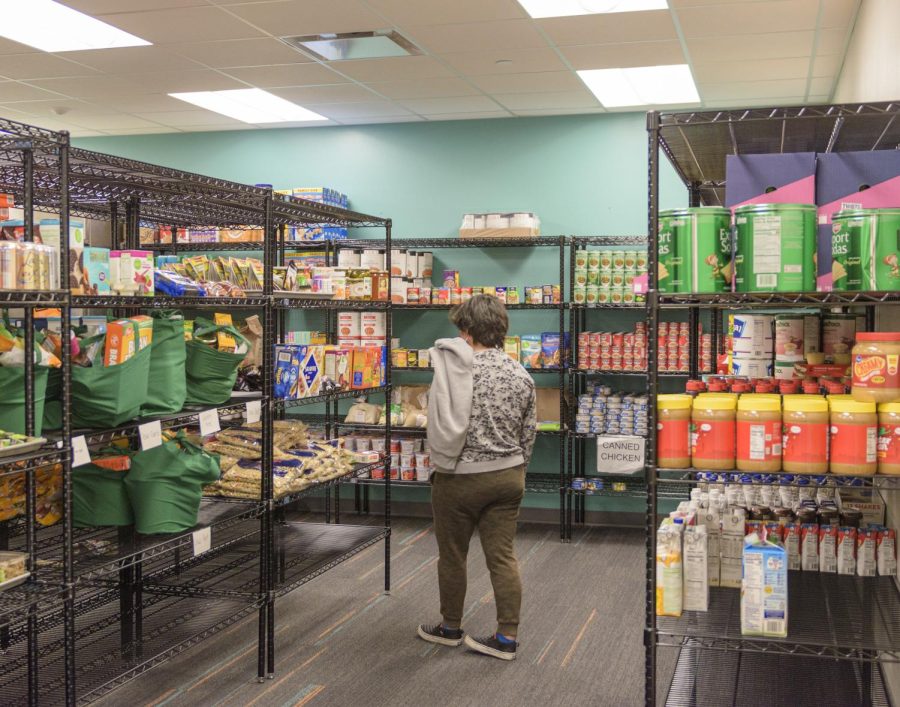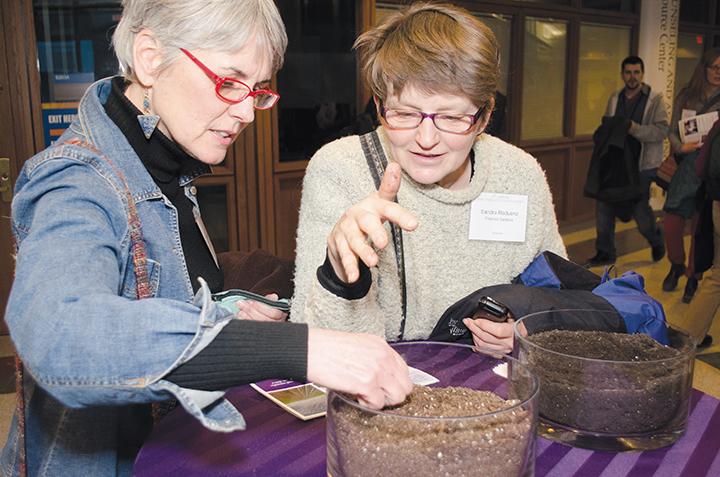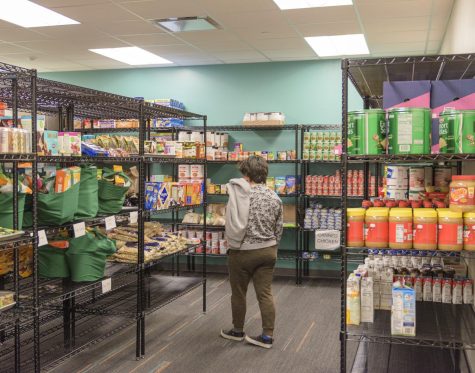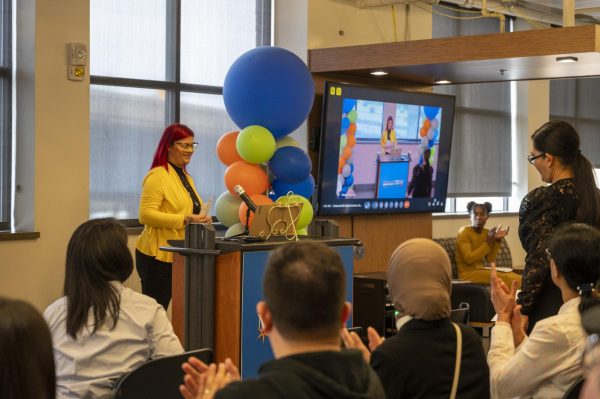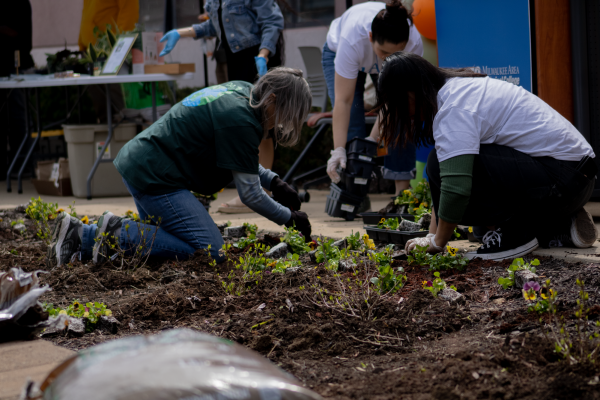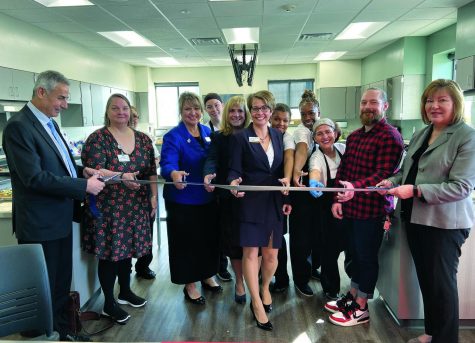Summit encourages locally grown, fresh food
Photo by Mike Hiller/Times
Martha Davis Kipcak (L), from the Milwaukee Food Council and Sandra Raduenz (R), of Pinehold Gardens examine different soil types on display during the eighth Annual Wisconsin Local Food Summit on Friday, Jan. 31 and Saturday, Feb. 1 at the Downtown Milwaukee campus.
What is better than getting a freshly picked ripe tomato from someone’s garden and eating that delicious BLT? Locally grown food was the topic at the eigth annual Wisconsin Local Food Network summit held on Jan. 31 and Feb. 1.
Speakers, exhibitors and students gathered to exchange information on the benefits of improving Wisconsin’s food systems. Local, organic, and sustainable were key terms whose importance in this process was emphasized. Speakers included LaDonna Redmond, founder of the Campaign for Food Justice Now, and Tony Schultz, co-owner of the organic-certified Stoney Acres Farm located in Athens, Wis.
Additionally, MATC’s own Culinary Arts instructor Jack Kaestner was invited to speak at the summit, detailing his goals of bringing more local food into the curriculum. This was the Wisconsin Local Food Network’s first summit at MATC. As Jane Hansen, a coordinator for the Wisconsin Local Food Network, describes, “MATC [has been] involved with sourcing local food for meals, so our philosophies relate well.” Hansen also expresses that the vision of the WLFN “fits well with the vision of the Culinary Arts program.”
The benefits of local agriculture are gaining widespread recognition as health awareness is on the rise. Local foods offer a fresher taste and more nutritional value, which to many means it also tastes better. Teresa Engel, a board member for the WLFN and economic consultant for the Buy Local Buy Wisconsin program, adds that “purchasing local foods helps keep money within local communities.”
According to Engel, the major goal of these programs is to increase the amount of local foods found in markets. They aim to do so by educating community members on policies of “collective impact”; which promote the coordinated efforts of corporations and non-profit organizations to improve the quality and sustainability of food systems. “In general,” explains Engel, “providing a connection to where your food comes from can be a benefit to a community… food is a great way to bring people together.” Engel adds that a lot of Milwaukee farmers grow crops in greenhouses during the winter, which is good news for foodies with fickle tastes.
Visit the Wisconsin Local Food Network’s website to learn more about their goals in supporting local, organic and sustainable agriculture.
Additionally, you can check out the Community and Regional Food Systems Project website to learn ways to get involved in supporting Milwaukee agriculture.
MATC [has been] involved with sourcing local food for meals, so our philosophies relate well.
— Jane Hansen, coordinator for the Wisconsin Local Food Network

I look forward to using my position as an Editor for the Times to inspire students to become more aware and active participants in their own education....















